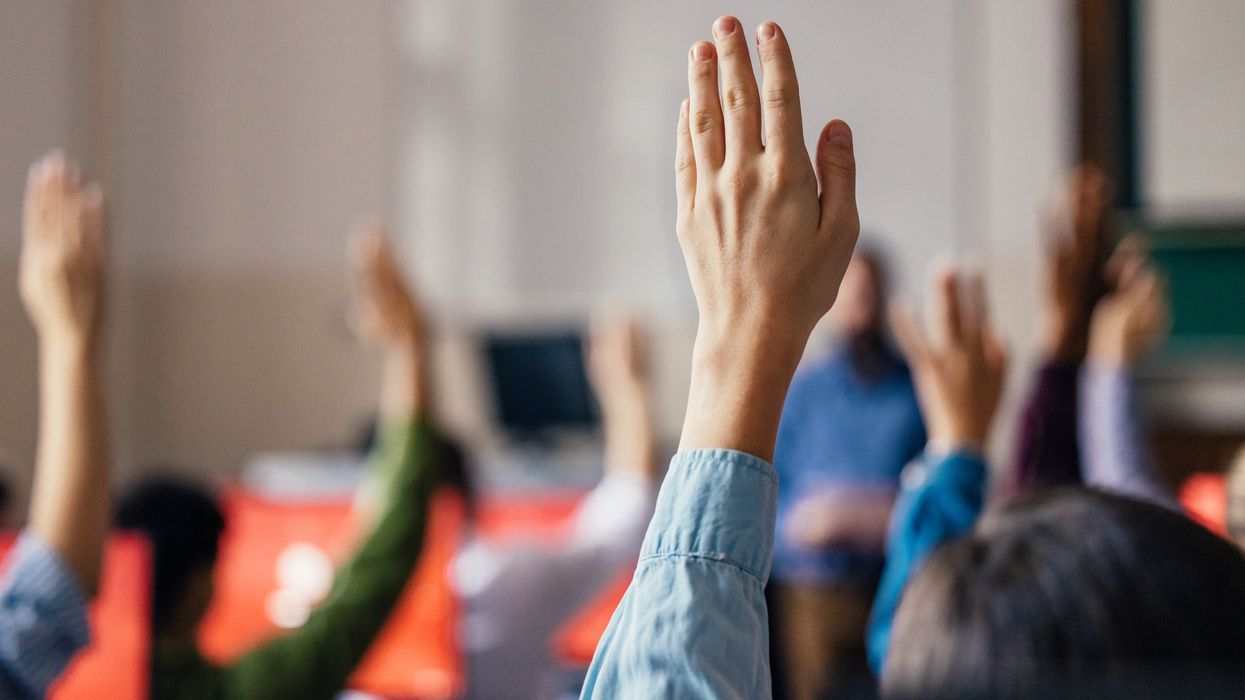The Committee of Seventy (C70), a nonpartisan civic nonprofit based in Philadelphia, has engaged more than 23,000 students across Pennsylvania in its youth programs in the past year.
The committee was founded in 1904 by a group of business and civic leaders in Philadelphia, working to stop corruption in the city and stop the public perception that Philadelphia was the worst-governed major city in the country. More than a hundred years later, one of C70’s goals is to teach civic engagement to youth across Pennsylvania by creating a curriculum for teachers to use that educates students to cast informed votes and hold elected officials accountable when they are eligible to politically participate, shared Director of Civic Education at C70 Justin Villere.
“Democracy is not a spectator sport,” said Villere. “It requires continued engagement.”
During the 2024 presidential election, Pennsylvania was reported as a swing state by the U.S. News & World Report because it plays a “key role” in the outcome of the election since both the Democrat and Republican parties “have similar levels of support.” Pennsylvania is also the swing state with the highest number of electoral votes at 19.
Some of the curriculum C70 offers is found on their website and free for teachers to use when teaching their students. Some of these programs are also open to the broader public as well.
The topics also vary from a “PA Mock Youth Election,” where students have to research real candidates and decide who to cast their vote for, to “Democracy for Kids,” teaching students thoughtful listening and creative inquiry.
But C70 also directly engages students with understanding democracy in the real world, like with their initiatives "How Philly Works Guide", which educates Philadelphia residents on how their city government operates, and #VoteThatJawn, a hashtag used on social media to spread awareness to eligible young people and first-time voters to register.
Villere said most people in Pennsylvania recognize C70 for their voter educational resources. Although C70 has programs focusing on making youth civically engaged, they also work to increase democratic participation for everyone across the state. Villere added that one of their flagship programs is their WeVote program, a project with over 230 partners across the state educating all constituents about voting.
“C70’s expertise and strategic guidance were essential in providing clear, actionable resources to our students and empowering Temple’s voter education and engagement initiatives,” Deanne DeCrescenzo of Temple Votes at Temple University said of WeVote.
Another program C70 hosts for students and adults is called, “Can We Talk,” which promotes skills for society and promotes successful dialogue across differences. The goal, according to C70’s website, is to counter political polarization, as two thirds of the American public said they often or always feel “exhausted” when discussing politics, per the Pew Research Center.
Villere added that another flagship project since 2020 is connecting with Philadelphia City Commissioners to train thousands of poll workers for each election.
A report from the Pennsylvania Independent states election officials said there were not enough poll workers in the state leading up to the 2024 election. The article added that election officials in Philadelphia recruit young people by allowing 17-year-olds to be poll workers.
C70 also has their “17-year-old poll workers” program in Philadelphia through PA Youth Vote giving 17-year-olds, who are ineligible to vote in general elections, the opportunity to still participate in elections through being a poll worker by connecting them with county resources.
“I'm grateful in particular for the commitment the Committee of Seventy has made to helping Philadelphia have fully staffed and prepared Boards of Elections,” Philadelphia City Commissioner Seth Bluestein said. “Without this work, our elections would not have been as successful as they were."
Villere said before the 2026 midterms, C70 plans on growing their programs so they can support election offices, rebuild trust in democracy, and prepare the next generation for civic engagement.
“It’s going to be a busy decade,” Villere said.
Maggie Rhoads is a student journalist attending George Washington University School of Media and Public Affairs. At The Fulcrum, she covers how legislation and policy are impacting communities.
Maggie was a cohort member in Common Ground USA's Journalism program, where Hugo Balta served as an instructor. Balta is the executive editor of the Fulcrum, and the publisher of the Latino News Network.
The Fulcrum is committed to nurturing the next generation of journalists. Learn more by clicking HERE.
Please help the Fulcrum's NextGen initiatives by donating HERE!
Correction: An earlier version of this story incorrectly stated that C70's mock elections used fictional candidates, rather than real candidates, and that a report from the Pennsylvania Independent states election officials said there were not enough poll workers in the state for elections in 2024, although the report was published before the election.




















Trump & Hegseth gave Mark Kelly a huge 2028 gift